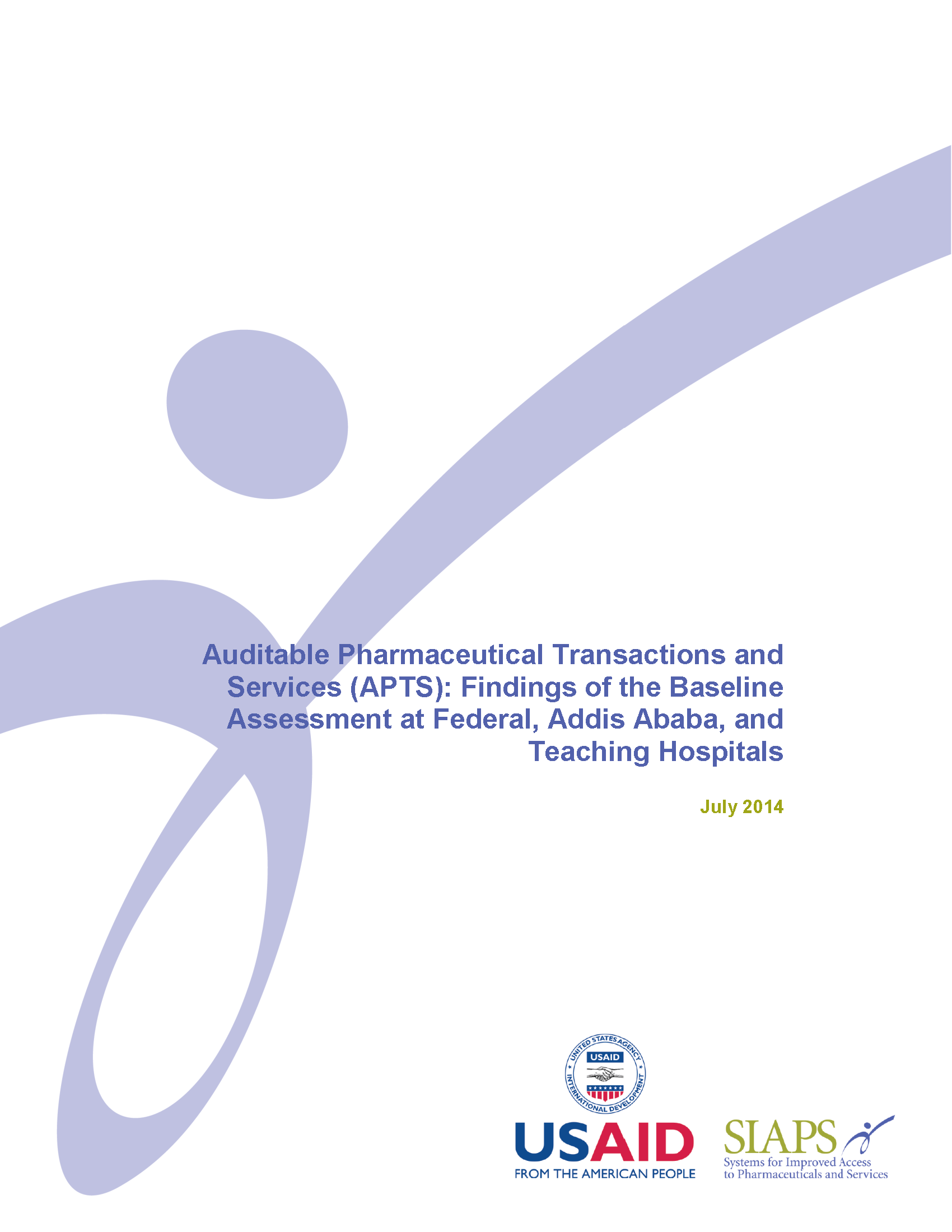
Diseases such as pneumonia, diarrhea, and malaria are the major causes of morbidity and mortality in Ethiopia. They can be successfully treated with essential medicines. Noncommunicable diseases are emerging challenges that are receiving the attention of the Government of Ethiopia. However, the essential medicines required to treat such priority health problems are not available on a continuous basis in all public health facilities. Weaknesses in the governance of the pharmaceutical sector are believed to contribute to most of the challenges to the continuous availability of essential medicines. There is a lack of transparency and accountability in managing medicines and financial transactions at the health facility level, which causes the wastage of limited resources.
To effectively tackle these problems, health facilities in some regions have implemented a package of interventions known as Auditable Pharmaceutical Transactions and Services (APTS). The approach is yielding positive results. With support from the USAID-funded SIAPS project, APTS was first piloted at Debre Markos Hospital and then scaled up to other hospitals in the Amhara region. Hospitals in other regions learned about best practices from these health facilities and the Amhara Regional Health Bureau (RHB) and adapted the approach to their own context. APTS institutes transparency and accountability in the way medicines are managed at health facilities and improves the overall performance of pharmacy services, thereby enhancing the quality of services and minimizing the wastage of resources. APTS uses existing and new approaches and tools to improve the use of available budgets, transparency, and accountability of medicine transactions, and customer satisfaction with pharmacy services. APTS also leads to improvements in staff recruitment and deployment, the availability of medicines, and generation of revenues from medicines sales.


